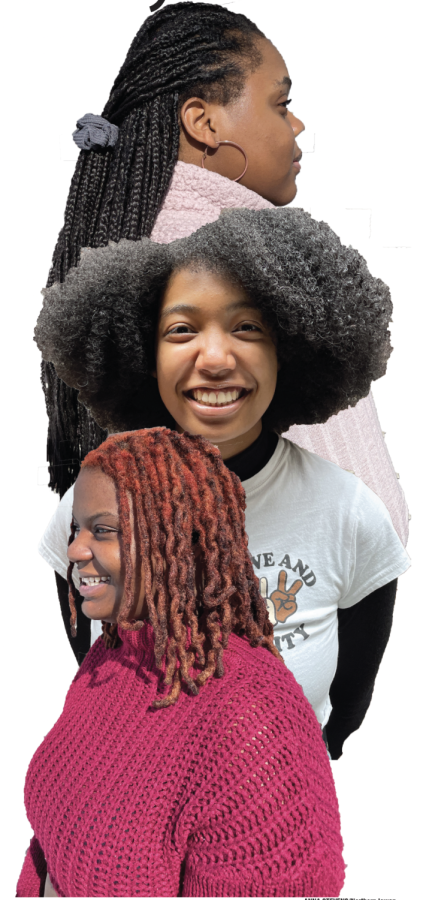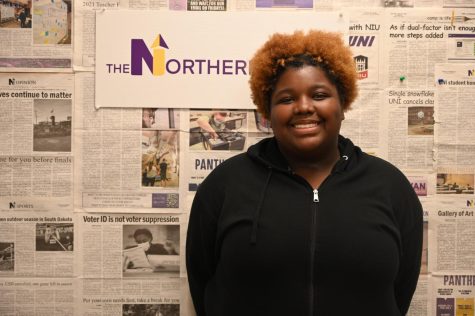Don’t touch my crown
Dove’s mission statement is to “encourage women and girls to have positive relationships with beauty and helping to raising their self esteem.”
Mar 10, 2022
In 2019, California became the first state to pass the CROWN Act bill. This bill prohibits race-based discrimination against natural hair and was passed on July 3, 2019. The CROWN Act—Creating a Respectful and Open Workspace for Natural Hair—was created in 2019 by the company Dove and the CROWN coalition with Californian Senator Holly J. Mitchell. The CROWN act “ensures protection against discrimination.” As of 2022, there are 14 states that have adopted the same or similar bills on anti-discrimination concerning Black people’s hair. However, there are 26 states that have denied the bill, including Iowa.
Why is such a bill needed in US legislation anyway?
The Declaration of Independence states that “all men are created equal.” The CROWN act states, “people should not be forced to diminish their racial-cultural identity by changing their natural hair to adapt to predominantly white spaces, workplace or otherwise.” The bill holds companies accountable for their policies and protects Black women, especially so they can work without the stress or worry of changing their hair in fear of their company policies. The CROWN Act believes that America has a problem with Black hair: kinky coils, frizz, afro, braids and locs. People around the world have a plethora of different hairstyles. Hair is a big part of the cultural identity, and that includes a lot of time, money and effort that goes into maintaining our natural hair. For many years, Black hair has been labeled as “nappy,” “bad,” “too radical,” and unwanted in eurocentric countries. Past media has portrayed an image of “good” Black hair as being anything but the hair we were born with.
Today, more Black women are wearing their natural hair to their workplaces and are more likely to be policed by their jobs about it. Dove conducted a research study about the impact of hair discrimination on Black women vs. non-Black women (mostly white women) in 2019 and 2021. About 83% of Black women are more harshly judged based on their looks and are perceived as less job-ready depending on the type of hair they have and 80% of Black women are also more likely to change their hair in order to fit in. Job readiness is defined as the skills and characteristics that employers seek; the more job-ready you are, the better.
For context, a Black mannequin modeled common hairstyles worn by Black women. The most job-ready hairstyle was a short pixie cut, at 13% less job-ready, like Kris Jenner’s hair. Locs were the least job-ready, at 31% less job-ready, like Zendaya’s 2015 Oscars hairstyle. The fashion police reporter, Guiliana Rancic, said Zendaya’s hair smelled like patchouli oil or weed. When she was called out by Zendaya, she said it had nothing to do with race. Even celebrities are not safe from hair discrimination.
The study also found that about 53% of Black mothers reported that their daughters had experienced hair discrimination as young as five years of age. Black students are more likely to receive disciplinary action for policy-related issues than other races of students. Many students have been sent home because their hair wasn’t “neat.” Iryonna Reed and Ola Johnson, UNI students, also had some things to say about how American society treats Black hair. “People give you different amounts of attention depending on how your hair looks,” Reed said. Johnson remembered an earlier incident with a classmate who had made her uncomfortable by touching her hair without her consent. “I felt very uncomfortable and it made me aware of how I’m different from my peers,” Johnson said.
There are some schools that have banned afro puffs, a popular style for Black girls. In 2018, Andrew Johnson, then a high school wrestler, had to cut off his dreadlocks because the referee said they were not safe. It was either cut or forfeit. The interesting thing about this situation is that he had wrestled just fine before. It wasn’t until he was given an ultimatum by a white referee that has been alleged to have used racial slurs two years prior that his hair was a problem.
Microaggressions are a type of passive-aggressive racism that makes one do a double-take since it’s not direct. Though a sly comment may seem racist to one person, the intended target knows the intentions behind the hair-touching and back-handed compliments.
Echo Bearden, a member of the community, has had her fair share of hair hate. She was raised in a mostly white town. In Bearden’s freshman year of high school, she wore box braids for the first time. “I can remember loving my braids, but there were kids that would say racial slurs to me,” Bearden said. “I was sitting with a friend from Africa. I was wearing my natural hair. There was a group of kids who came up to us and called us rats and made rodent noises as they passed by.”
I have also had my own experiences with unwanted hair touching. I was in middle school when a white high schooler approached me from behind and grabbed my hair. I felt so uncomfortable and embarrassed. When I turned around, he just walked away with a little laugh, complimenting my hair but without an apology for groping my head.
I’ve had more than one incident with a coworker who kept asking to touch my hair. No matter how well-meaning, I was uncomfortable with having my hair touched.
I had told her no many times but gave up since she would not stop asking. It’s quite unfortunate that our society holds no regard for personal space when it concerns a black person’s hair. You can appreciate our unique hairstyles and still be respectful. Just don’t touch the hair.










Loeke bolumbunado • Apr 11, 2022 at 2:46 pm
An interesting and excellent article, done.
Good job,
Well done.